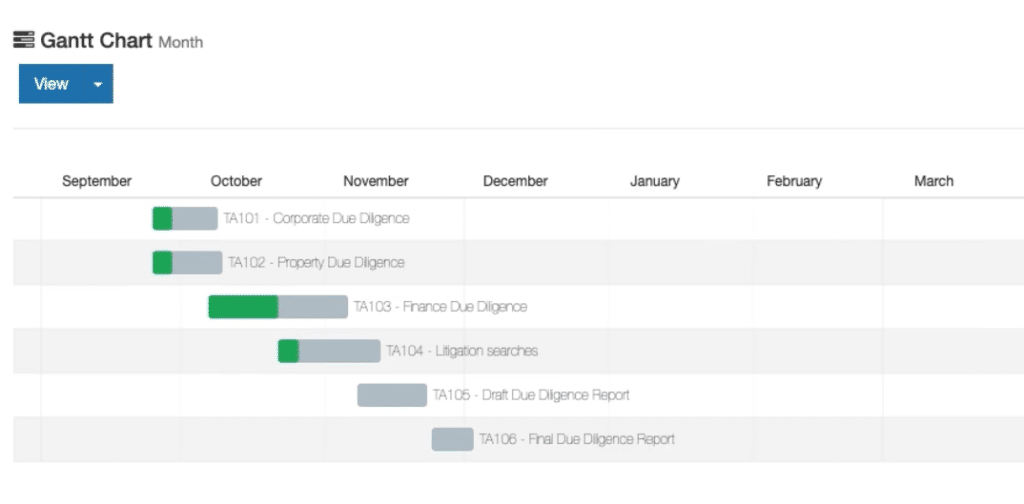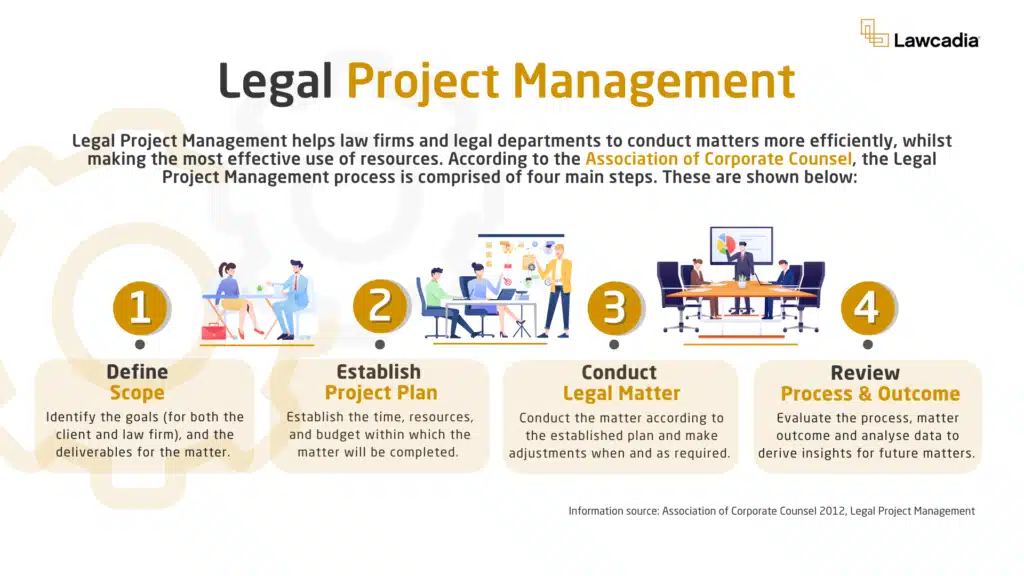The volatility, uncertainty, complexity, and ambiguity of recent times has introduced new challenges for law firms and legal departments – challenges which traditional mindsets and ways of working are now incapable of solving effectively.
Namely, client expectations, volume of work and constraints in resources has compelled legal professionals to transform internal processes in order to continue delivering quality services whilst fulfilling their budgetary obligations. One such ‘transformation’ is the growth in legal project management, which according to the inaugural Legal Pricing and Project Management Survey, has been integral in overcoming these challenges.
This article explores the role of project management in providing legal services and discusses why it is an essential capability for the modern law firm.
What is Legal Project Management
According to the Association of Corporate Counsel, Legal Project Management (LPM) is a process through which law firms and law departments plan, execute and review a matter or project within the scope of predetermined objectives, budget, resources, and time frame. It involves adapting traditional project management principles for application within a legal environment and encompasses four main phases:
-
- Defining the Scope
- Establishing the Project Plan
- Conducting the Matter
- Reviewing the Process and Outcome
Why is Legal Project Management important?
LPM is an essential capability because, as stated by Thomson Reuters, it allows law firms to offer consistent, accountable and continuous service delivery to its clients. Moreover, with consideration to the emerging challenges that require innovative solutions, managing projects well means law firms can continue to meet client’s expectations, despite increasing volumes of work and constraints in resources.
Client expectations
Our previous article, Client Experience, Technology and Legal Services, shed light on the evolving client expectations and provided insights regarding how law firms can use technology to deliver matters in a way that exceeds these expectations. However, although the importance of matter delivery was the focal point of that discussion, how law firms manage the matter is equally as important. LPM is one way law firms can manage matters efficiently, both operationally and visually.
Operationally, LPM allows law firms to meet client’s demands for customisation, efficiency, and value of service delivery by establishing clear objectives, providing fee estimates, assigning tasks, allocating resources, and monitoring the progression of a matter time and cost-effectively within the agreed scope of work.
Here is where law firms can implement functions such as client intake forms, automated workflows, RFPs and budget & matter management in a way that is customised to the client, efficient, and adds value to service delivery.
Visually, LPM allows law firms to meet client’s demands for transparency, accessibility, and information using communication tools, Gantt charts (see example below), status updates and reporting tools which increases accountability and provides visual assurance that a matter is on track.
Here is where law firms can utilise functions such as client collaboration workspaces, change of scope approvals, and Business Intelligence (BI) reporting to not only demonstrate transparency, but also give clients more access and control over the matter process, which can assist in building trust, loyalty and strengthening relationships.

Conclusion
With increasing client demands, volume of work and constraints in resourcing, it can be difficult for law firms and legal departments to concurrently work on their growth strategy, whilst ensuring they continue to deliver a high standard of service to their clients. However, by adopting a consistent and structured approach to project management that incorporates the client objectives into each plan, defines the scope, and includes regular reviews, law firms and legal departments can more strategically use technology to achieve growth while maintaining quality service delivery for their clients.


